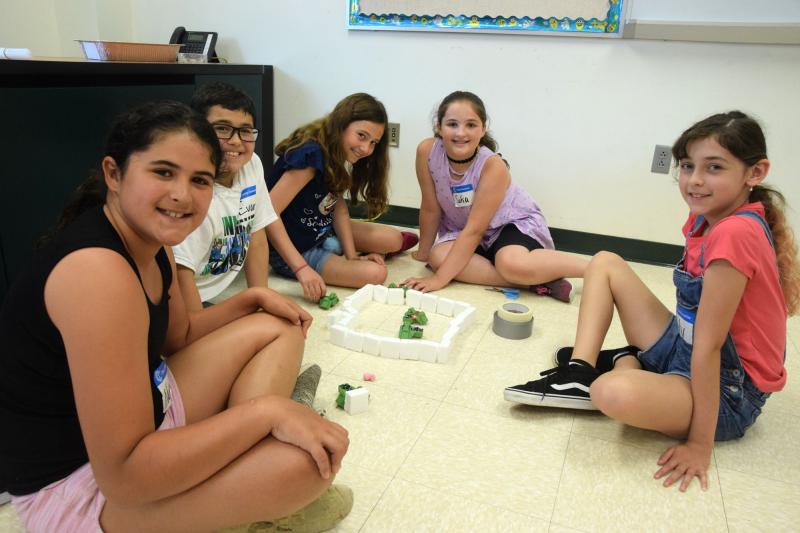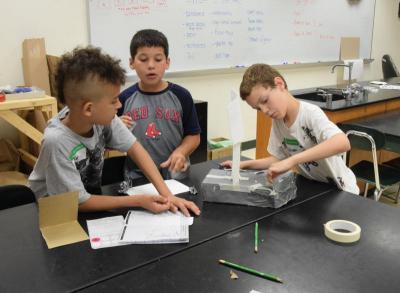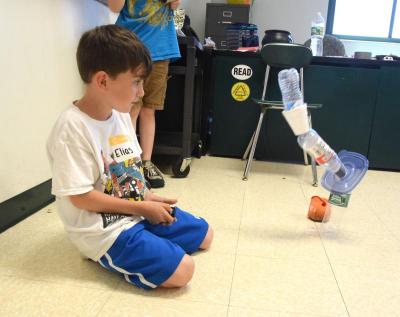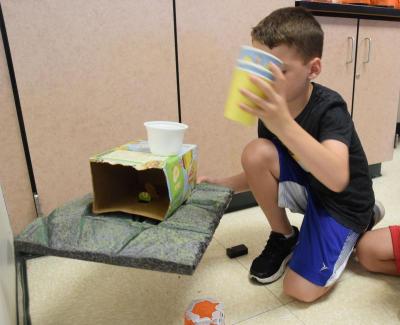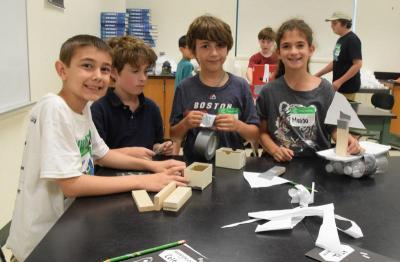Young inventors learn STEM at summer camp
More than 100 elementary school students spent the week building robots, studying farm tech, and creating gadgets out of electronics and cardboard as part of Camp Invention.
The camp, now in its third year, brought in a record number of students to Dartmouth High School this year. Camp Director and DeMello Elementary School teacher Leslie Gamache noted the program hit a 120-person cap, fueled by a focus on science, technology, engineering, and mathematics programs offered at Dartmouth elementary schools.
“It’s the largest number we’ve had,” Gamache said. “We do a lot of iSTEM at the elementary schools.”
During the week-long camp, organized by the National Inventors Hall of Fame, students alternated between four STEM and invention-themed projects.
At one station, students reverse-engineered special “Orbot” robots, and used what they learned picking them apart to build their own.
Students learned basic circuit design, and more advanced engineering topics like the use of code-division multiple access (CDMA) radio multiplexing to operate multiple robots on the same set of radio frequencies. Once the robots were built, students tested them out by completing challenges like knocking over obstacles.
Instructor and DeMello teacher Erin Shurtleff noted she took a hands-off approach to leading the program, encouraging her students to learn what works, what does not, and keep trying different things — all key themes of engineering.
“The cool thing is it really gets the kids an idea of perseverance,” Shurtleff said, noting students faced and overcame problems with initial designs.
At the “Deep Sea Mystery” station, students focused on ocean-themed engineering challenges, like building boats out of cardboard and researching fossils.
On Thursday, the young inventors were finishing up their boat designs. One team — Colton Mimoso, Fletcher Greenspan, Marina Franzese, and Trae Saluto — kept a traditional sailboat design for the top of the boat, and Mimoso covered the cardboard in duct tape to help prevent water from penetrating it.
Franzese attached two empty plastic water bottles to the bottom to improve buoyancy, a trick she remembered from a similar project in school.
“The water bottles will help it float better,” Mimoso said.
There were two other stations: “Farm Tech,” in which the campers applied engineering solutions to common farm problems like corralling and protecting animals from predators, and controlling weeds and vegetation. The final station was superhero themed.



